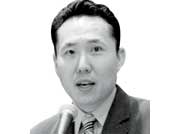One of the questions a Korean-speaking visitor to North Korea is likely to encounter in a private conversation with a local is “What happened to the Party and security functionaries of East Germany after reunification?” This question shows one of the most important, and perhaps the defining feature, of the North Korean apparatchik’s collective world view ― a fear of the future.
In most ex-communist countries, the collapse of the old regime had little impact on the relative prosperity of the people who lost power. In nearly all post-Soviet states, as well as many states of the former communist Eastern Europe, the ex-nomenklatura quickly reinvented themselves as business leaders and politicians, with only a handful of especially unlucky or notorious personalities being punished for their misdeeds. Astonishing.
However, North Korea’s officialdom is worried that the existence of the prosperous South Korea makes their situation different. They believe that a crisis in North Korea will likely lead to unification by the absorption of the North into the South, and that after that, they will have no future.
This fear may be one of the single most important factors behind the North Korean regime’s ability to survive against all odds.
A sad peculiarity of North Korean life is that almost anybody with practical administrative or political experience can be seen as a regime collaborator. Unlike many dictatorships, the North Korean regime does not tolerate the existence of an apolitical independent elite or, for that matter, uncontrolled social activities.
In the last decades of the Soviet Union, there were writers whose works did not extol the virtues of the party (they were not openly critical but they did not parrot the official propaganda line). There were historians, philologists and even journalists who managed to keep their distance from the regime while pursuing quite successful careers.
Such people and such a social strata are absent in North Korea. Every novel, every movie, every history book, and every newspaper article must contain explicit eulogies to the greatness of the Kim family and their regime. Demonstrating adequate political zeal is a prerequisite for a successful career of any kind.
In this context it is easy to understand the fears of the North Korean elite (around 1 to 2 million people, if you include their families). But these fears are a bit exaggerated.
First of all, the totality of ideological control makes the wholesale replacement of the present elite highly impractical, and seemingly impossible. Whatever force is in charge of post-Kim North Korea, it will have little choice but to employ the old elite, since no one else knows how to get things done in North Korean society. These people have a near complete monopoly on useful skills and knowledge and it is highly unlikely that they will be replaced by outsiders – like say, South Korean carpetbaggers. And of course, there are no insiders who are capable replacing them.
Therefore, even if some especially notorious personalities and even entire social groups (like, say, the political police officers) are removed, the vast majority of North Korea’s elite seems destined for a happy post-Kim future even if this future means unification with the South on Seoul’s conditions. Like their peers in the Soviet Union and elsewhere, they will deliver a few ritualized excuses about their past involvement in the old system, and then proceed with their lives and careers. If anything, many of them are likely to benefit from a change ― after all, they are best positioned to enjoy the fruits of future economic growth in a post-Kim North Korea, and this growth is likely to be spectacular.
Their children are likely to fare even better. Like it or not, virtually all young smart people who are to be found in North Korea today are the sons and daughters of the present-day elite. Among other things, they are the only people who are likely to be fluent in English, and this will become a major advantage in the post-Kim North Korea. In order to acquire information technology skills, one also must be a scion of the top 5 percent of North Korean families who can afford a computer at home.
And last, we should not forget that the present-day North Korean elite have significantly better social skills, better general education and better looks (nutrition matters) than many of their fellow countrymen and women.
This might be a rather disconcerting prospect for some readers who would probably prefer and expect justice to be served to the perpetrators of what might have been the worst human rights abuses of the last few decades. However, in actual history, justice is a rare commodity, for every case of its triumph (and such triumphs are usually overstated), one can easily find many cases when collaboration with rather disgusting forces has paid off handsomely ― both for the collaborators themselves and their children.
Professor Andrei Lankov was born in St. Petersburg, Russia, and now teaches at Kookmin University in Seoul. You can reach him at anlankov@yahoo.com. <The Korea Times/Andrei Lankov>




